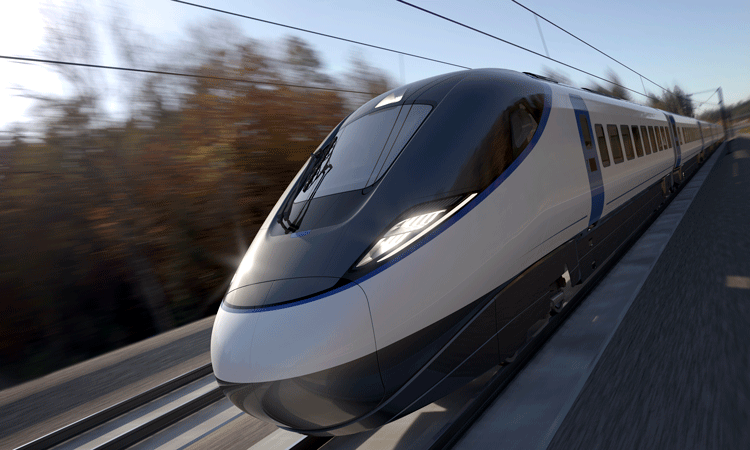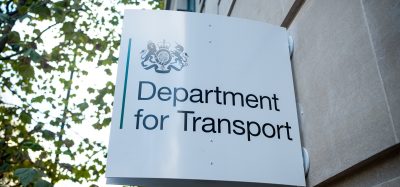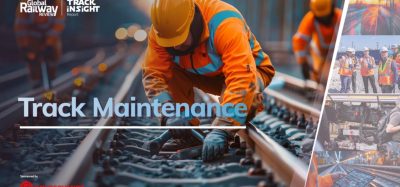HS2 pledges to make journeys zero carbon for emissions from ‘day one’
Posted: 11 January 2022 | Global Railway Review | No comments yet
From day one of operations, HS2 trains will be powered by zero carbon energy creating a cleaner, more sustainable travel alternative and supporting the UK’s 2050 climate change goal.


Credit: HS2 Ltd
HS2 Ltd have announced that the trains for Britain’s new high-speed network will be powered by zero carbon energy from day one of operation, offering a cleaner alternative to long-distance car journeys and domestic flights, while supporting the government’s 2050 target to tackle climate change.
This commitment will play a key part in HS2 Ltd’s aim to make the project net zero carbon from 2035, with targets of diesel-free construction sites and major reductions in carbon emissions from the steel and concrete used to build the railway.
HS2 Minister, Andrew Stephenson, commented: “We know that the climate crisis demands urgent action and these commitments from HS2 are vital steps towards achieving cleaner UK travel. HS2 is a once-in-a-lifetime investment and we want to ensure the country’s biggest infrastructure project, supporting thousands of jobs and businesses, is underpinned by the government’s ambitions for a greener transport and construction future.”
Achieving new carbon reduction milestones
HS2’s Net Zero Carbon Plan, published today (11 January 2022), sets out how HS2 will achieve new carbon reduction milestones, support the decarbonisation of the UK construction sector and reduce the carbon footprint of the programme.
Major new targets include aiming for diesel-free construction sites by 2029, with the first one expected in 2022. Carbon emissions from steel and concrete will be reduced by 50 per cent by 2030 compared with 2021 levels. To help achieve this, HS2 is collaborating with research organisations to accelerate innovation in low carbon technologies, such as alternative fuels and renewable energy.
“HS2 Ltd is completely committed to reducing our carbon emissions as we design, build and operate the new railway,” explained Mark Thurston, HS2 CEO. “We’ve ensured that tackling climate change is an essential feature of all areas of our work – in design, in early works, and throughout major construction, allowing the project to build towards net zero from 2035.
“The new targets announced today demonstrate the significant role HS2 will play in addressing the climate challenge, by providing a low carbon, long-distance transport solution and leading the construction sector to drive down carbon emissions.”
From 2035, HS2 Ltd will reduce carbon emissions as much as possible and make those that cannot be eliminated net zero by using natural or technological methods, known as carbon offsetting. This means HS2 will remove the same level of emissions that are produced as it builds, maintains, and operates HS2.
Being zero carbon from 2035
HS2 Ltd will work towards being zero carbon from 2035 through a number of new targets, including:
- Using 100 per cent zero carbon electricity generation to power its trains – making journeys on HS2 zero carbon for emissions from ‘day one’
- Introducing the first diesel-free site in 2022 – and stop using diesel on all sites by 2029
- Working with supply chain partners and industry peers to set ambitious new science-based targets in 2022 to tackle carbon emission ‘hotspots’ year-on-year as HS2 is built
- Cutting emissions from concrete and steel by 50 per cent (tCO2e/t) by 2030 compared with 2021 levels
- Investing in innovation and forming partnerships to speed up ways to cut emissions in HS2’s supply chain
- Cutting emissions from sources HS2 owns or controls and indirect emissions from electricity production
- Offsetting residual carbon emissions that cannot be eliminated as HS2 is built, maintained and operated from 2035. This includes looking at ways to capture and store carbon emissions using nature-based interventions such as planting new trees to absorb carbon dioxide.
HS2 is working with the supply chain and research organisations to pilot and implement low carbon materials, alternative fuels, renewable energy and new construction methods through the HS2 Innovation programme. There are currently 32 innovative projects across the programme with projected savings of 1.6 million tonnes of carbon emissions.
In design, highlights include:
- Cutting carbon emissions by 45 per cent by redesigning the Chilterns tunnel south portal
- Interchange station in Solihull becoming the first railway station in the world to achieve BREEAM ‘outstanding’ for its eco-friendly design
- Redesigning the roof at Old Oak Common station, west London, to reduce the amount of steel by 27 per cent, cutting embodied carbon
- Cutting the amount of concrete and steel needed to build the Wendover Dean viaduct, Buckinghamshire, saving 7,433 tonnes of carbon – equivalent to 20,500 return flights from London to Edinburgh, and
- Reducing the depth of the paving in the public realm at Curzon Street station by 38 per cent to cut embodied carbon.
In construction, highlights include:
- Trials of a new low carbon concrete product that cuts carbon emissions by 42 per cent compared with standard concrete
- A world-first pilot scheme using recycled wind turbine blades to reinforce concrete – cutting carbon emissions for reinforcement by up to 90 per cent
- Using 3D reinforced concrete printing onsite, cutting quantities of concrete, reducing carbon emission by up to 50 per cent and cutting deliveries by truck
- Pioneering the UK’s first electric forklift at a major construction site – achieving the same performance as a conventional model with zero emissions, and
- Using Clean Air Gas Engine technology, initially in site welfare units, to cut carbon on construction sites.
Welcoming the announcement of the Plan, Kate Jennings, Policy Director and High Speed Rail Group Board Member at the Railway Industry Association (RIA), said: “It is good to see HS2 Ltd committing to being zero carbon from the very first day trains run. This commitment shows how an already environmentally-friendly rail project can lead the way and go even further in supporting the UK’s Net Zero agenda, whilst also supporting investment and jobs. HS2 will need the support of the rail supply community if it is to deliver its Net Zero Carbon Plan, and rail businesses across the country, including RIA members big and small, are ready to meet this challenge head on, ultimately supporting a new green railway for the UK.”
Related topics
Electric/Hybrid Rolling Stock, High Speed Two (HS2), High-Speed Rail, Rolling Stock Orders/Developments, Sustainability/Decarbonisation
Related organisations
HS2 Ltd (High Speed Two), Railway Industry Association (RIA)








